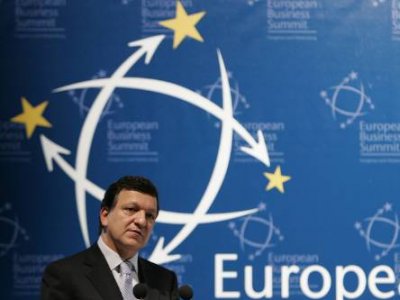Four EU leaders to meet later Saturday on finance crisis
 Paris - The leaders of the four EU members belonging to the G8 group of leading industrial nations were set to meet later Saturday in Paris to discuss a common European response to the global finance crisis.
Paris - The leaders of the four EU members belonging to the G8 group of leading industrial nations were set to meet later Saturday in Paris to discuss a common European response to the global finance crisis.
The mini-summit was called by French President Nicolas Sarkozy, as current EU president, and will be attended by German Chancellor Angela Merkel, British Prime Minister Gordon Brown and Italian Prime Minister Silvio Berlusconi.
European Commission head Jose Manuel Barroso, European Central Bank president Jean-Claude Trichet and the head of the Eurogroup, Luxembourg Prime Minister Jean-Claude Juncker, will also be participating at the scheduled four-hour meeting.
In addition, Sarkozy was scheduled to meet with International Monetary Fund head Domnique Strauss-Kahn shortly before the talks begin.
The summit was preceded by a controversy over a proposal to create a 300-billion-euro (413-billion-dollar) fund to bail out struggling financial insitutions, similar to the plan passed by the House of Representatives and signed into law by US President George W Bush late Friday.
Apparently supported by the Dutch and the French, the idea was summarily rejected by Germany and Britain, and will not be on the summit's agenda.
Instead, discussions will concentrate on nuts-and-bolts issues, such as increasing control of credit-rating agencies, tightening solvency requirements for European banks, increasing cross-border coordination of bank and insurance-company regulators and changing European accounting rules.
The four leaders will also have to deal with the fall-out from Ireland's decision to establish a 100-per-cent guarantee for depositors in the six Irish-owned banks.
The move, made without consultation with the European Commission, has already attracted investors away from British banks, and has put pressure on the Brown government government to match it.
EU Competition Commissioner Neelie Kroess has slammed the move, saying that it imperils EU cooperation and flies in the face of the EU's state aid and competition requirements.
To bolster confidence, the EU leaders will have to show a united front in dealing with such prickly issues while also agreeing on convincing measures to shore up the European finance sector. (dpa)